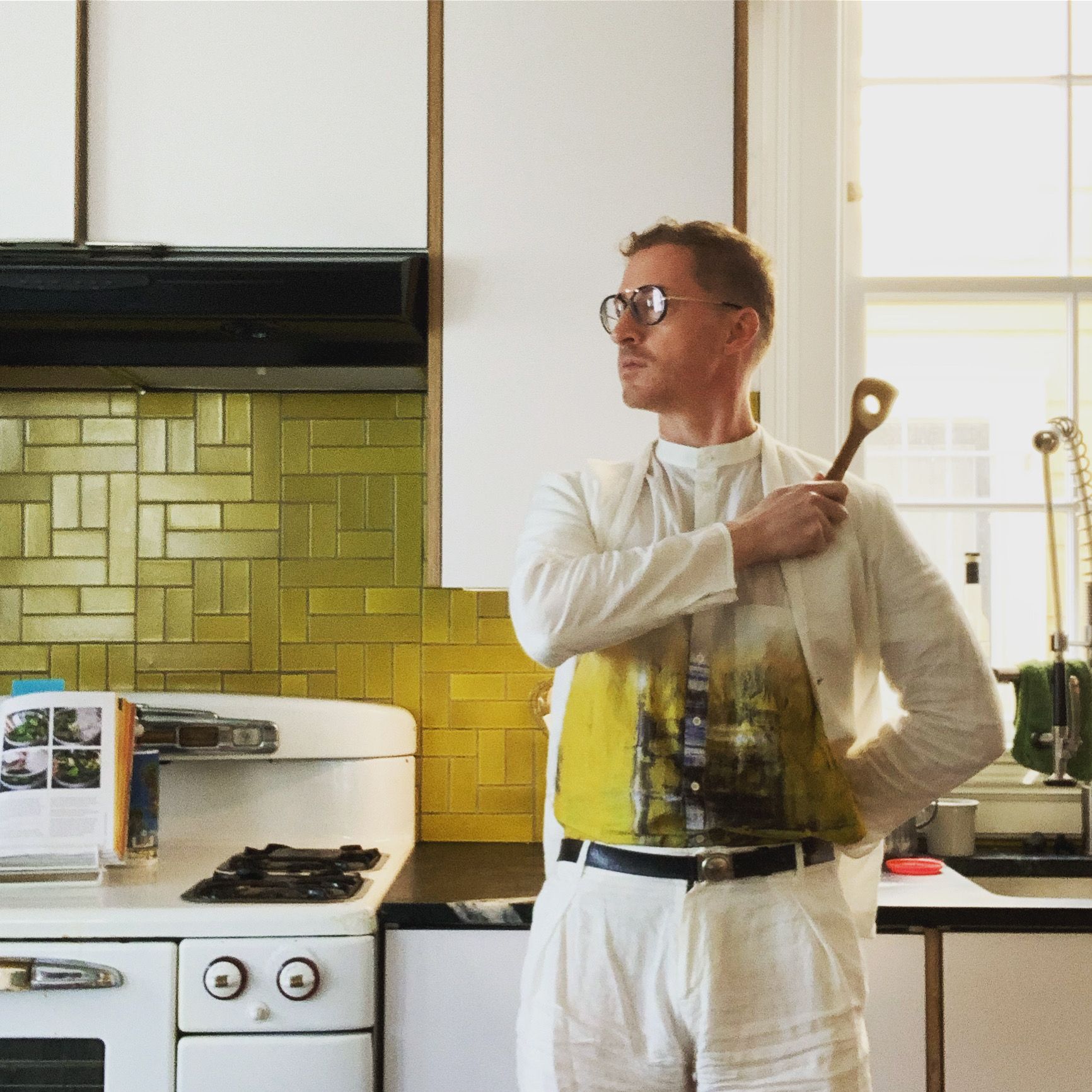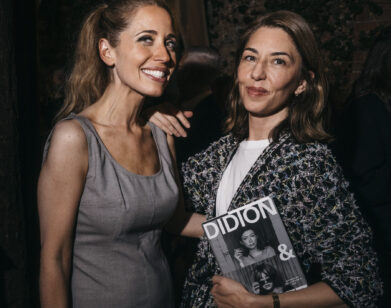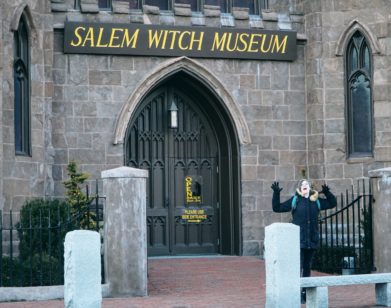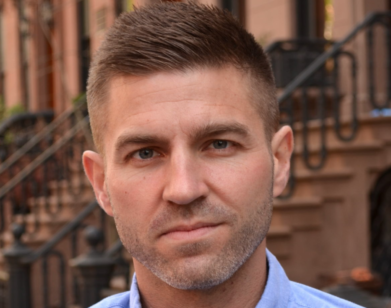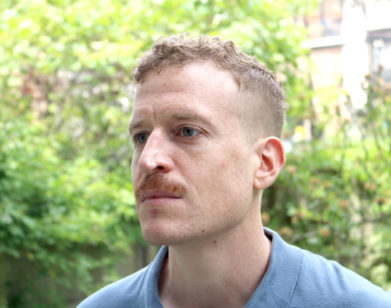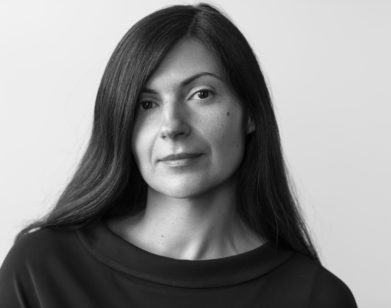LIT
Andrew Sean Greer Finds Himself
Good news! Less is not lost! Or, rather, Andrew Sean Greer’s brilliant breakout out of novel, the hilarious and heartbreaking Less, released back in (the simpler? More horrific? Hard to measure) 2017 and which went on to win the Pulitzer Prize, now has a sequel, which, thankfully, is just as hilarious and heartbreaking and wise and shot through with such vivid, beautiful imagery, that it manages to stay true to the wonder of the first novel while venturing out with our gently graying middle-aged protagonist through the wilds of contemporary America, all told through the clever, slightly less wide-eyed lens of his younger boyfriend, who sits in faraway Maine waiting for this Arthur Less, of solo RV road tripping with only a lap dog as a companion, to arrive. Along the way, Greer’s genius guzzles lots of gas. Less is Lost is a gay odyssey for our weird, divided age. But the author himself is also a delight. And here we are, by phone from New York to San Francisco, both probably wishing we were in Italy.
———
CHRISTOPHER BOLLEN: Today I went to the gym and there you were, on a fleet of stationary bicycles, the riders all holding up a section of the Times with your portrait on it.
ANDREW SEAN GREER: People are sending me pictures of people on the train with my giant face covered in tulle. It’s delightful. The photographer said, let’s give them something wild and I was up for it. I guess the Times was too.
BOLLEN: So seldom are writers are up for doing something fun in a photo shoot.
GREER: I’m totally game because I have no sense of dignity. So I was like, yeah, just find a dress and some tulle and let’s just set it up.
BOLLEN: How did you find tulle so quickly?
GREER: It’s San Francisco.
BOLLEN: That’s where you find it. And maybe also here in New York. Your new novel is largely about the America in between San Francisco and New York. I’m guessing the impulse of writing it was to try to unearth what the hell is going on in our own country?
GREER: That was exactly it. Although, you have to time-travel back to 2016, because novels take so long to write and publish. Right after that election I was baffled as was most of the people I knew and I just thought, apparently I don’t understand this country. So my instinct as a writer is to go right towards what I’m afraid of or don’t understand. So I rented an RV.
BOLLEN: How long was the journey?
GREER: Six weeks. I went through the Southwest. Then I did another in the deep South where I could only go to small towns and sit in diners and bars and talk to people. I had all those notes just before the pandemic, so I think all of us were still like, what is going on in this country? So that informed the book.
BOLLEN: Had you gone on road trips before?
GREER: Since I live out West, a road trip is sometimes necessary just to get somewhere. I know how to do it. You have to set rules or else it gets too boring. You can only stay in a motel with a neon sign. I took a road trip with my mother where the rule was to stay in a crazy place every night. So we stayed in a teepee and a hippie earth ship outside of Taos. It drove her crazy.
BOLLEN: So when you went out on this American odyssey for the book, what did you discover? I don’t mean the character in your novel, but you, Andrew Sean Greer. Did you find America ultimately redeeming or are we one big nation in complete chaos and everyone is simply fighting for their own advantage?
GREER: That was a few years ago and already things feel so different now. But what I would say after those trips is that everyone I met was in incredible pain and that they were sure that there was no one who could help them, certainly not the government. And either they then turned to others to help them with their pain or they lashed out and were like, burn it all down. That’s what I got. And sadly, the greatest pain people had was economic distress and failed dreams because they had either had a child too soon or had been a child that was had too soon and they were given up for adoption and entered a difficult world, Now, with the new abortion rulings t’s just deeply depressing because that was the source of everyone’s pain and the source of their rage and anger and here we go. Worse.
BOLLEN: I can’t make any sense of it. Why everything seems to be intentionally trying to make people’s lives worse. But the American that Less discovers in your novel does seem to me ultimately loving and affectionate. It’s interesting, there are so many novels in this novel—in Less and Less Is Lost, fact. It’s a comedy, a picaresque, a love story, and adventure, of coming-to-terms with age, and for me it’s also a very meaningful reflection on different generations of gay men. Less had a mentor-like older poet in his life, and now a young partner. Three generations of very different gay men. Is that something you thought about while writing these books?
GREERL It’s something I think about a lot. You and I both have some of the same friends of an older generation who are now 80 and who lived a different life of incredibly harder struggle and wilder sexual abandon. At least in comparison to me. I won’t speak for you. And then our generation is much more… We’re the ones who got married.
BOLLEN: I know we’re so prudish comparatively.
GREER: Yes, we’re super prudish! I’m glad to hear that because I was always like, why is everyone else going to bathhouses? I’m scared to death. And then I’m interested in these younger generations that are more critical and now see us as being in a privileged position, which is unthinkable to an older generation.
BOLLEN: It seems unfathomable because nothing about our situation seemed privileged while growing up.
GREER: It was so not. And I’m like, you just wait around a couple minutes, it won’t feel like a privilege. And here we are in Florida. It’s starting again. It’ll all turn around soon.
BOLLEN: I have to say, I am a little envious of your setup. From what I understand you spend half your year in San Francisco and the other half in Italy. Where are you now in Italy?
GREER: I’m living in Milan.
BOLLEN: I was in Milan a year ago, and it occurred to me that it’s the city where men dress the best. They dress like how I imagined men dressing when I was a child. In New York men dress like they are in college. In LA, like they are in junior high. But in Milan, they truly embrace adulthood.
GREER: That’s totally true. I come back to San Francisco and I’m thinking, why is everyone dressed like they’re going to a workout but they’re going to Google? I don’t get it. Why don’t you dress for a job? I understand it’s an athleisure moment but if you’re going to go athleisure can you go Balenciaga? Does it have to be Lululemon? That is not happening in Milan. And it helps me to see 80 year old men who are in a three piece suit. It’s part of what gets them through the day. You’re not going to fall apart because you have a waistcoat.
BOLLEN: I want to ask you about comedy. Of the course of your career, you’ve written novels in so many different veins, most of them more serious in tone. Less and Less Is Lost are comedic. Do you think you are, at heart, a comedic writer? Does humor come naturally to you when you sit down with a blank page?
GREER: I didn’t think so. I would not have thought of myself as a comic novelist, but I bet you if you had the sort of trouble I did working on a book and you thought, this idea is so ridiculous no one’s ever going to buy it, you might think, well, why don’t I just make it ridiculous? Then I can do whatever I want. That’s what happened with Less. I just was like, this is no good, it’s too serious. So I went the other way. Because if there’s a flaw in my writing—and there’s very many of them, one is I get too close to an emotional mentality. But with comedy, you can get really close to that fire because you pull back at the last second with a laugh. So it could get closer to emotion than my serious novels which it’s always right on that line. And I loved doing it. It felt like it was the same project of playing with language, it just was playing with it in this comic way. You get to choose these ridiculous words instead of making sure you don’t choose the ridiculous words.
BOLLEN: What were the comic novels that influenced you?
GREER: Of all the Nabokov novels, Pnin is my favorite because it’s not trying as hard. It wears itself so lightly and I find it much more moving because it’s making fun of this character. But even maybe in spite of Nabokov ridiculing this character, we really feel for him more than most of his monsters.
BOLLEN: So you didn’t go for the more vicious comedy of, say, an Evelyn Waugh?
GREER: The one Evelyn Waugh I like is called The Ordeal of Gilbert Penfold, which I read while I was working on this book. It’s a fictionalization of a time when Waugh went on a cruise. and he mixed some of his doctor’s drugs by accident and started hallucinating. It’s bizarre but it’s funny and painful and it was really interesting because it wasn’t as caustic as his other books which I find unpleasant.
BOLLEN: In both books you make light of literary awards. And yet, the elephant being, that Less won the Pulitzer. I’m still at the stage of my career as a writer where I think, oh god, is this my last novel? Will they still publish me or is this the final curtain? There’s that feeling when you don’t have a massive bestseller and you haven’t been crowded in gold after a certain age. I imagine, as much pressure as following up with a successful book post-Pulitzer, there’s also the relief that in ensures you will continue to be published—perhaps it’s a ticket that means you’ll be published forever.
GREER: It is true because I was very recently on your side of the fence. We were in conversation with each other about this kind of feeling when our last books came out that it might be the last one, especially once you’ve published a bunch of books. And if they’re not best sellers, the publisher starts to look for a much younger writer who might be a better bet or a much older one to rediscover. If you’re right in the middle, you have to reach one shore or the other.
BOLLEN: Yes. Ugh.
GREER: I guess I hadn’t thought about it as that I’ll always be published. I just thought, I think I bought myself 10 years of not worrying about that. Because I’m aware careers go up and down. I have to be very aware to enjoy it while it is. And for this book, my only worry was that I was sure a lot of people would read it and I could easily become a target and go hurdling down, especially with a follow up to a book a lot of people loved for everyone to say, not as good, I guess he doesn’t really have it and shouldn’t have won that award.
BOLLEN: Some might claim it’s a safer bet to do a sequel to a beloved book, but in fact it seems like it might have been easier to go any entirely different direction and left that magic alone. You didn’t have another book in mind after Less came out?
GREER: I was working on a different book. The research I did in the RV was for a different book and I went away to an artist colony and I wrote 100 pages of it and I was so proud of myself. I’m like, here we go, and then I looked at the pages and I thought, this is terrible. This is terrible because I don’t have the right narrator, I don’t have the right protagonist, and it took me a nervous breakdown which always happens when I’m writing a book, to realize I had a perfectly good protagonist and narrator I could use again that would be perfect for the material. Also here was the thing about winning the Pulitzer Prize that I had to remind myself. Michael Chabon said, “Now you can write anything you want,” and I thought, I will. I’ll just write what I want. I want to write another book with Arthur Less and my agent won’t like it and my publisher probably will but none of that matters. This is just what I want to do. And so I gave myself permission to do it and to enjoy myself.

